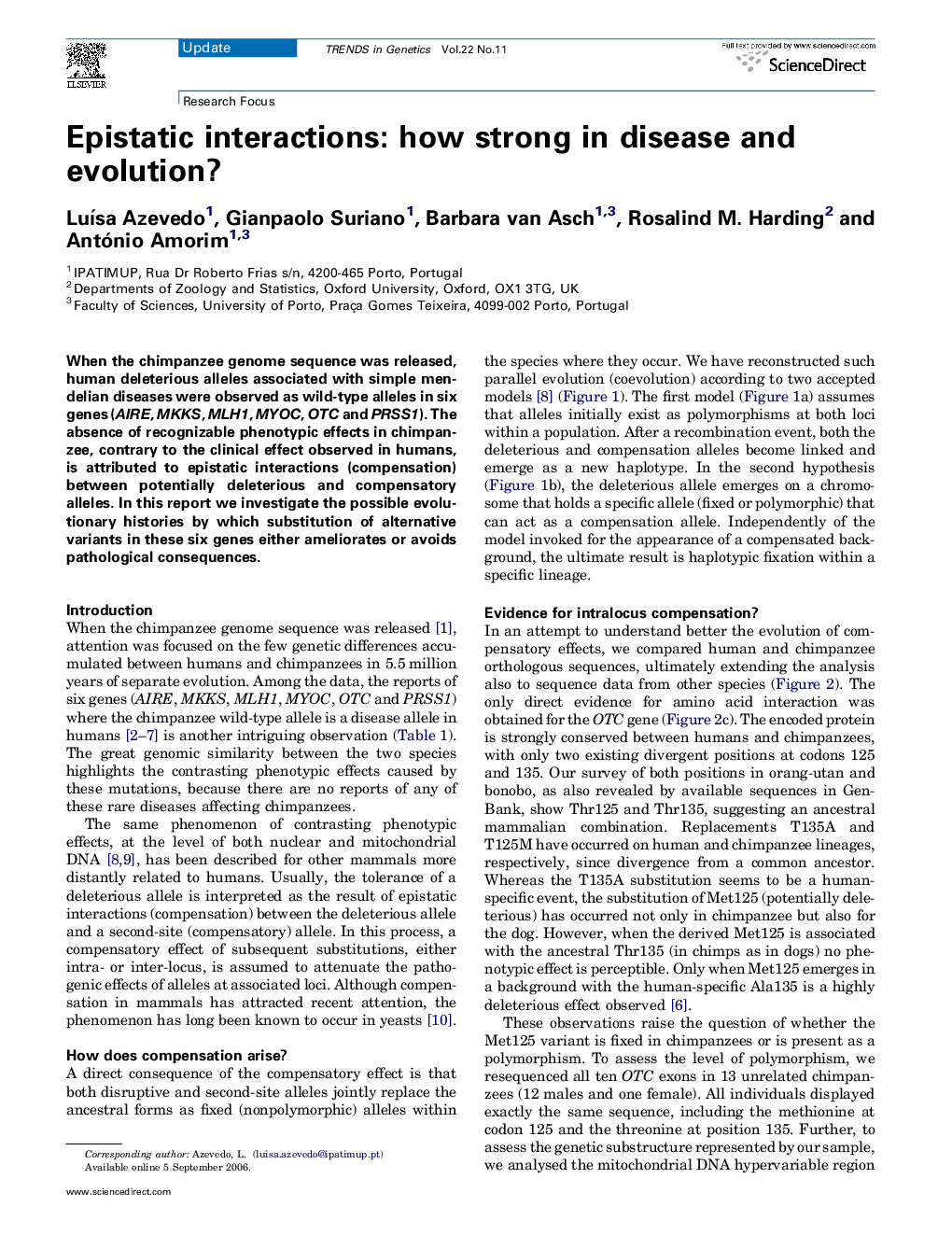| Article ID | Journal | Published Year | Pages | File Type |
|---|---|---|---|---|
| 2825546 | Trends in Genetics | 2006 | 5 Pages |
Abstract
When the chimpanzee genome sequence was released, human deleterious alleles associated with simple mendelian diseases were observed as wild-type alleles in six genes (AIRE, MKKS, MLH1, MYOC, OTC and PRSS1). The absence of recognizable phenotypic effects in chimpanzee, contrary to the clinical effect observed in humans, is attributed to epistatic interactions (compensation) between potentially deleterious and compensatory alleles. In this report we investigate the possible evolutionary histories by which substitution of alternative variants in these six genes either ameliorates or avoids pathological consequences.
Related Topics
Life Sciences
Biochemistry, Genetics and Molecular Biology
Genetics
Authors
Luísa Azevedo, Gianpaolo Suriano, Barbara van Asch, Rosalind M. Harding, António Amorim,
